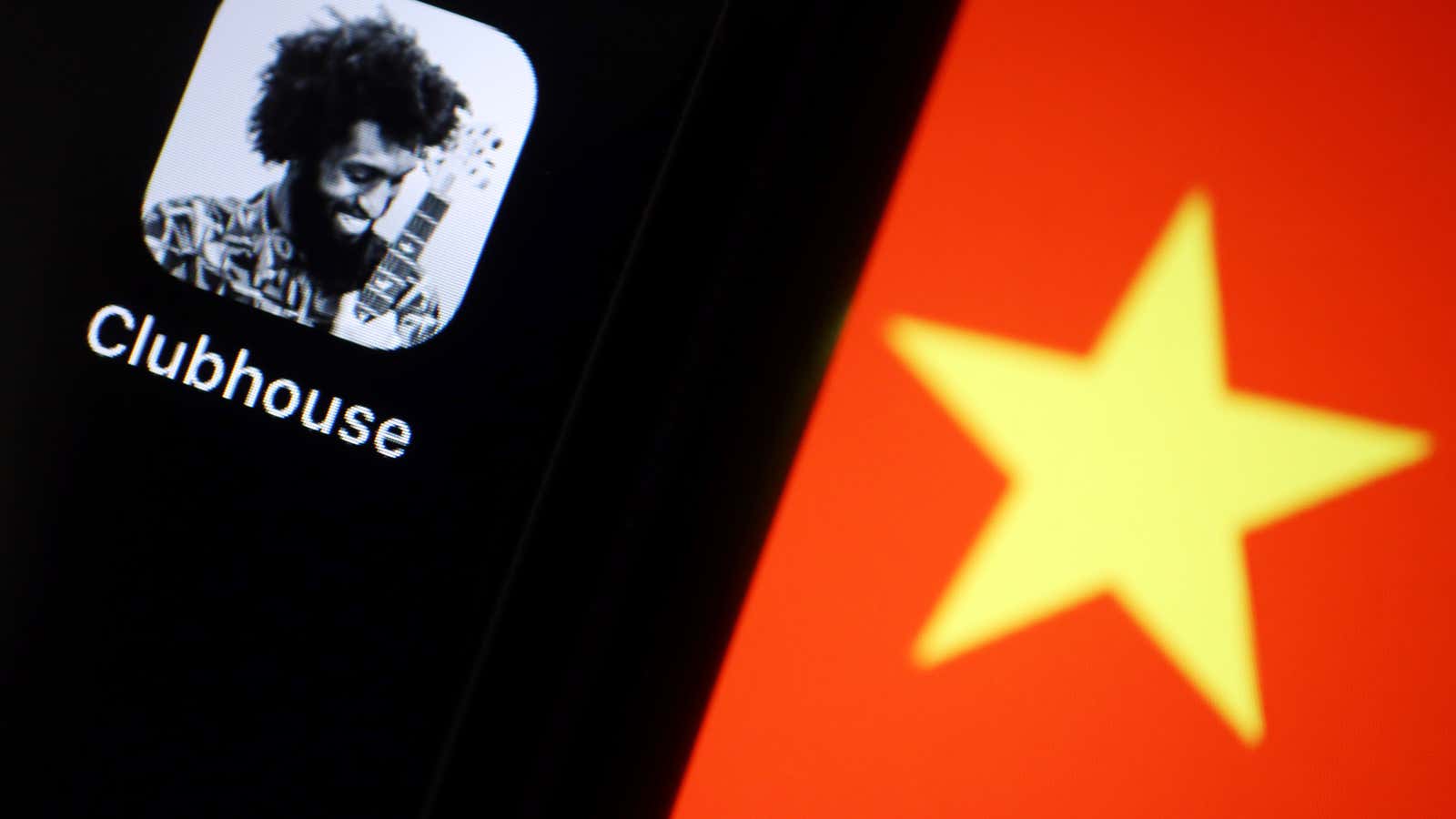When Beijing blocked Clubhouse this month, the app’s users in China mourned the end of the brief period of free speech they had experienced on the audio chat app. But the move is also an opportunity for Chinese tech firms to develop their own version of the tool—and already a handful of Chinese counterparts exist.
Overall, there are more than 100 teams (link in Chinese) in China exploring products in the area of audio-based social media, according to the CEO of iiMedia Research, a Chinese consultancy.
The invite-only US audio app attracted heightened interest in China after Tesla founder Elon Musk made his debut on it to quiz Robinhood founder Vladimir Tenev during the height of the brokerage app’s GameStop trading frenzy earlier this month. Although users need to have a non-Chinese Apple account to download the app, Chinese curiosity reached such a level that the app’s invitation codes were being sold for between 150 yuan ($23) to 400 yuan on Chinese e-commerce websites. On Feb. 8 Beijing blocked the app after Chinese users used the platform to listen to discussions on topics including the treatment of Uyghurs in China and the Hong Kong protests.
Chinese efforts to replace Clubhouse, though, are running into their own hurdles.
For example, Duibhuaba, or Let’s Talk, developed by Inke, a Hong Kong-listed company with live-streaming products, which appeared on Android and Apple app stores just two days after the US app was blocked, according to Chinese tech news outlet 36Kr. As of Feb. 20, Duihuaba had over 4,000 registered users among whom around 1,000 are active on a daily basis, according to the company. (Clubhouse hasn’t reveal user numbers but its downloads have reached 8 million globally.) But on Monday (Feb. 22), users found the Chinese app had been removed from both Android and Apple app stores, to which the developer replied that they are “upgrading and completing” (link in Chinese) the tool.
Then there’s a tool launched on WeChat that swapped out Clubhouse’s u for an r. Clubhorse, which says its name is inspired by the Netflix cartoon BoJack Horseman, was rolled out over the weekend and suspended nearly immediately by Tencent, which said the program infringed “the legal rights of others.” Users noted its interface was nearly identical to Clubhouse.
Justin Sun, a Chinese crypto entrepreneur who rose to fame after he successfully bid for a lunch date with Warren Buffet in 2019, has meanwhile launched a Chinese version of Clubhouse named “TWO.”
The biggest flaw with the Clubhouse clones, however, is one they will all share. While Clubhouse rose to fame largely because of its diverse communities that allow users to speak with “a room full of people whose backgrounds and experiences are completely different,” as the company’s community guidelines puts it, it will be pretty much impossible for Chinese versions to offer such free-wheeling and uncensored conversations under China’s blanket censorship.
Hence, the Chinese versions could end up just like the country’s existing audio and video-based social media platforms, including Douyin (the Chinese counterpart to TikTok), which offer fun yet innocuous content such as celebrity gossip. While social discussions—and even expressions of anger—do take place online, the extent to which they are tolerated before suddenly vanishing is determined by internet regulators.
Beijing’s tightening grip on online platforms, which have seen some users being arrested for posting messages critical of the government, means Chinese developers of a Clubhouse-style app will also have to recruit censors and control the scale of chatrooms to avoid sensitive topics. How much attraction these audio chat apps will have if they can’t function as an open public square, given Chinese users already have hundreds of thousands of Chinese podcasts and video live streams to choose from, remains to be seen.
